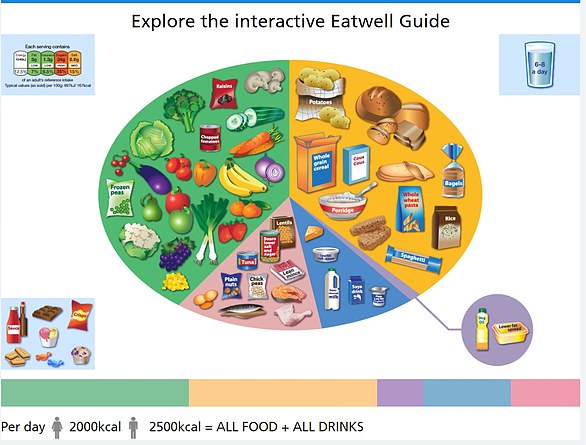Food FOMO is undermining the diet plans of half of adults, a poll shows
- Half of adults have put off trying to lose weight because of the fear of missing out
- People are concerned about the lack of chocolate, takeaways and fish and chips
<!–
<!–
<!– <!–
<!–
<!–
<!–
Fears of missing out on food and social events could be getting in the way of weight loss plans, according to a new poll.
While many may start January with internal promises to improve health and fitness, half of adults say they've put off trying to shed some pounds for fear of missing out on experiences.
The survey of 2,000 adults found that chocolate, takeaways, fish and chips and chip shops are the things people are most concerned about.
More than three-quarters said they enjoy eating their favorite foods, while two in three said they are passionate about the food they eat.
Women in particular felt so strongly about food that more people said they feared missing their Sunday roast than going without sex.

While many may start January with internal vows to improve their health and fitness, half of adults say they have postponed their attempts to shed some pounds for fear of missing out
Reasons people give for finding great pleasure in food include the taste, the feeling that someone is preparing a meal for them, and bringing back happy memories of family traditions or routines.
Dr. Amanda Avery, health and research dietitian at Slimming World, said: 'Food is one of life's greatest pleasures, so it's no wonder that food FOMO (the fear of missing out) is a problem for many of us. is a very real factor when it comes to losing weight. .
'As the research shows, in many cases certain foods can have a powerful pull on us, triggering memories and emotions and rekindling past tastes and pleasures.
'It can often be challenging to find the desire or motivation to change deeply ingrained habits around the way we shop, cook and eat, and that's where support can be key to helping downsizers.
'But there's no need to give up your favorite foods or miss out on the fun – it's just about finding new ways to prepare and cook the meals you love.'
Commenting on the findings, James Stubbs, professor of appetite and energy balance at the University of Leeds, said it is 'too simplistic' to assume we eat just because we are hungry.
“By recognizing how food meets the different psychological needs of different people, we can explain why people eat what they do, knowing that this can undermine weight and health in the longer term,” he explained.
'Typically, when people change their dietary habits to lose weight, they can feel deprived of the various 'rewards' that food gives them.
'What this research shows us is that our relationship with food can be complex and that understanding our relationship with food on an individual level is important to help people navigate towards a healthy diet and healthier weight in a way that suits in their own lives.'

